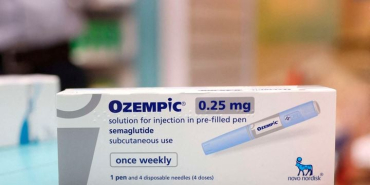Unqualified Medical Influencers on Social Media Threaten Public Health in Kenya

The rapid proliferation of unqualified individuals posing as medical experts on social media is emerging as a significant threat to public health.
This has eroded trust in established healthcare systems and continues to endanger the well-being of individuals who rely on accurate medical information. This trend, characterised by the dissemination of misleading or harmful health advice by so-called "medical influencers," is prompting calls for increased public awareness, stricter regulation, and greater accountability from social media platforms.
These digital personalities, often lacking formal medical training, capitalise on the accessibility and reach of social media to dispense advice on a wide range of health issues, from women's health concerns to general wellness tips and dietary recommendations. Their tactics often involve adopting the trappings of medical professionals, using medical jargon, and presenting themselves as "doctors" or "experts" to establish credibility and attract followers.
The consequences of relying on unqualified medical influencers can be devastating. Individuals who follow their advice may delay or forgo proper medical care, leading to the worsening of existing conditions or the development of new health problems. They may also experience adverse side effects from unproven treatments or fall victim to financial scams.
Investigations have revealed that much of the content shared by these influencers is plagiarised, lacks scientific validity, or even contradicts established medical knowledge. Some influencers have been found to provide dangerous or harmful advice, such as discouraging water consumption or recommending unproven remedies for serious medical conditions.
For many, the primary driver behind this trend is financial gain. Medical influencers often monetise their platforms through advertising, sponsorships, and the sale of products or services. They may charge exorbitant fees for consultations, promote dubious supplements, or endorse unproven treatments, all while profiting from the trust and vulnerability of their followers.
The potential for harm is illustrated by the case of Mr. P, who posed as an accoucheur (a person who assists during childbirth) and charged followers for consultations on maternal issues. Despite lacking proper medical registration, he amassed a large following and shared videos filmed in what appeared to be a private hospital. When investigated, it was discovered that the wards shown in his videos were not consistent with the hospital's facility, and the medical advice he provided was lacking in substance and accuracy.
Another example is Mr. O, who claimed to be a gynaecologist and fertility doctor, targeting women with his services. An open-source analysis revealed that he used a different name on Facebook and falsely claimed to have graduated from a Kenyan university in 2022. The challenge of regulating medical influencers is compounded by the fact that they operate in a digital space that transcends geographical boundaries.
Traditional regulatory bodies, such as medical councils, often struggle to enforce their rules and guidelines on social media platforms, where anonymity and pseudonymity are commonplace. In Kenya, the Kenya Medical Practitioners and Dentists Council (KMPDC) has acknowledged the difficulty of regulating unqualified medical influencers due to the lack of official complaints and the challenges of determining their physical location.
The council has established advertising rules for registered doctors and hospitals, but these rules do not apply to individuals who are not qualified medical practitioners. The Digital Health Act, passed in 2023, represents a step in the right direction by stipulating that digital health services must be offered by healthcare providers holding valid licenses issued by relevant regulatory bodies.
Dr. Dennis Miskella, deputy secretary-general of the Kenya Medical Practitioners, Pharmacists and Dentists Union, has urged regulatory bodies to take action against unqualified practitioners and emphasised the need for social media ethics training for doctors. He also warns that consulting unqualified practitioners is a form of self-harm, as it can lead to delayed or incorrect treatment.
Victor Ndede, Technology and Human Rights manager at Amnesty International, has cautioned that medical information is among the most sensitive types of personal data and that sharing such information online can lead to severe consequences. He advises individuals to use anonymous accounts or avoid disclosing personally identifying information when sharing their experiences or seeking help online.














Add new comment